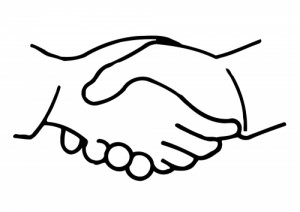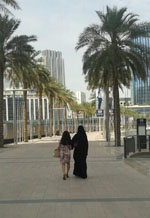 The first impression when visiting the Gulf is one of modernity. High rise buildings, state of the art highways and every facility anyone could want, readily available. These fast developing countries somehow trick visitors with its ultra modern first impression. The high level of development is real, but the local culture is conservative. And this is something entrepreneurs should keep in mind when doing business in the Gulf region. Why is this important?
The first impression when visiting the Gulf is one of modernity. High rise buildings, state of the art highways and every facility anyone could want, readily available. These fast developing countries somehow trick visitors with its ultra modern first impression. The high level of development is real, but the local culture is conservative. And this is something entrepreneurs should keep in mind when doing business in the Gulf region. Why is this important?
For a number of reasons. First of all there is the market. The market in these countries consist of people from many different countries, including nationals. In some Gulf countries, the local inhabitants are the minority. Lees verder
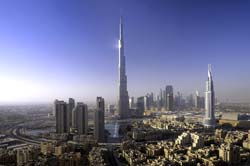
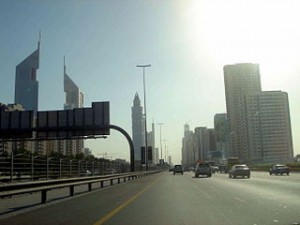
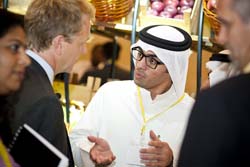
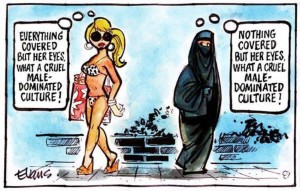
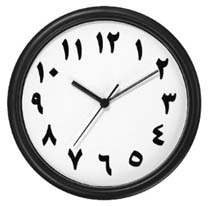 De betekenis van tijd is in de Arabische wereld wezenlijk anders dan in Nederland. In Nederland is tijd iets dat op raakt en het is veelal leidend. Om 11 uur start de vergadering en iedereen weet dat het tot 12.30 uur duurt. Het start meestal ook echt om 11 uur en als het te laat begint, voelt dat als verloren tijd.
De betekenis van tijd is in de Arabische wereld wezenlijk anders dan in Nederland. In Nederland is tijd iets dat op raakt en het is veelal leidend. Om 11 uur start de vergadering en iedereen weet dat het tot 12.30 uur duurt. Het start meestal ook echt om 11 uur en als het te laat begint, voelt dat als verloren tijd. Maar ja, die communicatie werkt wel anders dan Nederlanders gemiddeld gewend zijn. Nederlanders staan bekend om hun directe manier van communiceren, waarin alles gezegd kan worden. ‘We’ staan niet voor niks als bot en recht voor zijn raap bekend. Arabieren zijn gastvrij en welbespraakt. In communicatie met Arabieren gaat het ook vaak om wat er juist
Maar ja, die communicatie werkt wel anders dan Nederlanders gemiddeld gewend zijn. Nederlanders staan bekend om hun directe manier van communiceren, waarin alles gezegd kan worden. ‘We’ staan niet voor niks als bot en recht voor zijn raap bekend. Arabieren zijn gastvrij en welbespraakt. In communicatie met Arabieren gaat het ook vaak om wat er juist 